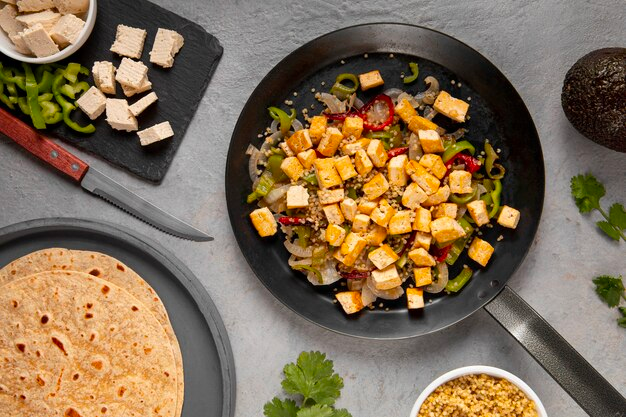Beauty is skin deep, but real health goes down much further. Today, we’ll delve into a crucial aspect of well-being that often goes unnoticed until it’s too late: maintaining strong, dense bones. This is especially vital as we age, for both men and women.
The key lies in controlling hormones and balancing minerals within our bodies, which unfortunately tend to deplete over time. This can lead to brittle bones and, consequently, a higher risk of falls — a major cause of injury and even mortality in older adults.
Weight Training

One of the top strategies for enhancing bone strength is weight training. This doesn’t necessarily mean hitting the gym hard; it could be as simple as level three of our 10-minute workouts, which incorporate light weights or resistance bands.
The benefits of adding resistance to your routine are manyfold, including:
- Increased bone mineral density
- Increased muscle mass
- A reduction in inflammation
- Better circulation
- Stronger metabolism
Nutrient-Rich Diet

You may have heard ‘drink your milk’ for strong bones growing up, but vegetables play an even more critical role in bone health. They’re not just about vitamins and fiber, either; they pack a wealth of minerals crucial for bone strength.
A study highlighted that post-menopausal women who consumed nine servings of vegetables daily for three months significantly reduced their bone turnover and mineral loss. This is attributed to the high levels of polyphenols and essential minerals like potassium, magnesium, and calcium found in veggies.
Loading up on dark leafy greens such as spinach or collard greens is a great way to start. For an easy place to start, try swapping out rice for an iron-rich salad as the base of the dish!
Becoming Calcium-Rich
While calcium supplements are common, and I do highly recommend picking up a multivitamin rich in calcium and other bone-supporting minerals: the majority of your calcium should still come from dietary sources.
If you’re lactose-intolerant, some great options can include mixing collagen powder into your coffee or smoothies. As mentioned before, leafy greens contain surprisingly large amounts of calcium: but so do beans, tofu, and even almonds!
The Importance of Minerals
Calcium is not the only important mineral, however. In a vacuum, calcium is unable to actually support your bones. Make sure that as you’re optimizing your calcium intake, you also get enough:
- Magnesium
- Zinc
- Potassium
- Chloride
- and Sodium
Daily consumption of legumes, nuts, seeds, and whole grains can help maintain adequate mineral levels; but I do also recommend picking up a multivitamin supplement to ensure you get all of the minerals daily.

Vitamin D3 and K2
The most crucial non-mineral elements for bone health are Vitamins D3 and K2.
Vitamin D3 helps in absorbing calcium from the food we eat and directing it towards our bones. Vitamin K2 then takes over, ensuring that this calcium is deposited in the bones and not in other tissues.
This dynamic duo is crucial for proper bone development and preventing calcification in other body parts.
Clean animal proteins such as sockeye salmon, chicken breast, and even egg can provide good amounts of natural D3 and K2. For vegan sources, fermented foods such as natto, sauerkraut, and kimchi can provide good amounts as well.
However, I do also recommend picking up a combined supplement to ensure you get your daily needs.
Proactive Bone Health
Every day is an opportunity to strengthen your bones. The choices you make now in terms of diet, exercise, and nutrient intake can have a profound impact on your bone health in the future.
Remember, it’s not just about adding calcium to your diet; it’s about creating a balanced, nutrient-rich regimen that supports overall bone health.
For more detailed guidance, check out my full bone health training and bone support supplement guide. And remember, it’s never too late to start taking care of your bones. Whether you’re in your 30s, 40s, or beyond, the time to start is now.












